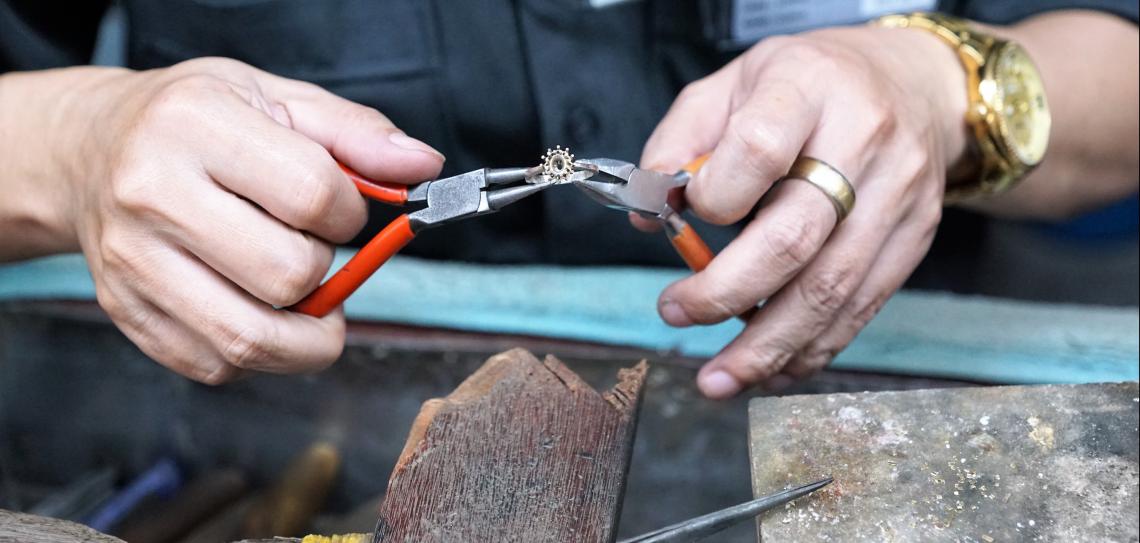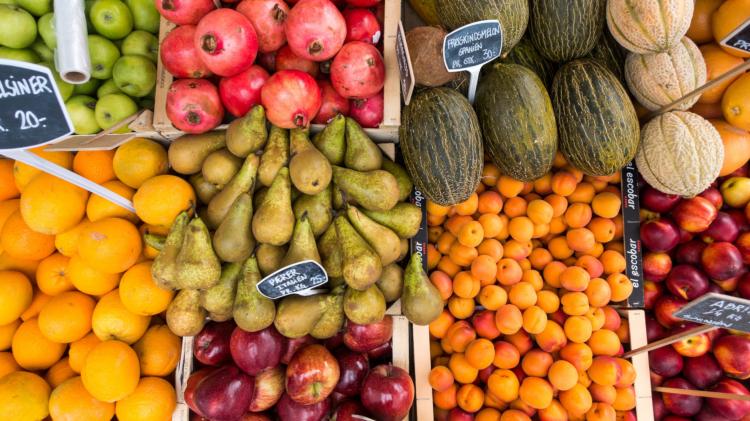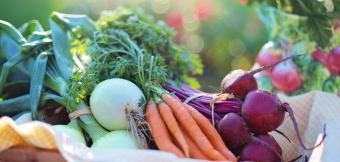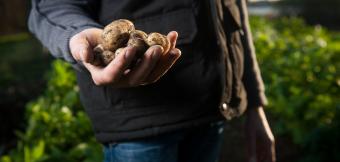
Pay producers properly
Production of cheap food and goods is a big contributor to climate change. Demanding things at the lowest price puts huge strain on our environment and producers. Paying growers, farmers and makers fairly means they can care for their land and themselves and choose methods that reduce CO2 emissions.

As several other actions make clear, buying less, shopping second hand, repairing things and making or growing your own are important ways to reduce your carbon footprint and tackle environmental problems in general (Action 51: 'Buy less, make more', Action 11: 'Refuse, reduce, reuse, repair & recycle', Action 29: 'Enjoy the simple things' etc.).
However, we all need to buy from other producers sometimes, especially food. When you do, think hard about where your purchases have come from and find out how the producers and the environment are being affected by your consumer choices. Here are four suggestions to help ensure your purchases do more good than harm.
Certified fairtrade
Fairtrade sets social, economic and environmental standards for both companies and the farmers in the Global South who grow the food we love; food like chocolate, coffee, tea, fruit and sugar.
For farmers and workers the standards include protection of workers’ rights and the environment; for companies they include the payment of the Fairtrade Minimum Price and a Fairtrade Premium to invest in business or community projects of the community’s choice.
Environmental protection is ingrained in Fairtrade. To sell Fairtrade products, farmers have to improve soil and water quality, manage pests, avoid using harmful chemicals, manage waste, reduce their greenhouse gas emissions and protect biodiversity. They also typically engage in reforestation and forest protection, agroforestry, climate change adaptation training, wildlife conservation projects, switch to renewable fuels and consciously conserve water. By buying Fairtrade produce, you are supporting all these activities.

Handmade and handcrafted
In recent years, there has been a major revival in handcrafted products, ranging from beer to toys to knitwear. These items are more expensive than factory produced items, but they are more valuable, more special, and likely to last longer.
Items that are handmade take less energy and natural resources to produce than items from a mass production assembly line. Many mass-produced items require long-distance shipping to get to the consumer, which results in increased carbon emissions. Since handmade items aren’t produced in large quantities, and are often made locally, mass transportation of goods isn’t necessary.
Buying handmade products can also create jobs and strengthen the economy. Handmade goods are typically created by small businesses, and their growth is good for everyone. Shifting just 10 percent of consumer spending to locally-owned businesses would create hundreds of new jobs. Knowing that your money is going toward a local company that creates products with integrity is invaluable to consumers.
Low carbon farming
How your food is grown really matters for climate change. Low carbon farming builds soil carbon, includes mature trees, manages animals carefully, and reduces pesticides (see Action 21: 'Farm regeneratively'). But most farmers are under huge economic pressure and simply can't afford to farm this way. Supporting low carbon farming means spending more on your food, but also directly seeing the benefits. The best way to support low carbon farming is to build a direct relationship with a local grower.
Community supported agriculture (CSA) is a partnership between farmers and consumers in which the responsibilities, risks and rewards of farming are shared. It helps address concerns about the lack of transparency, sustainability and resilience in our food system.
Vegetable box schemes deliver fresh fruit and vegetables directly to the customer. Typically the produce is sold as an ongoing weekly subscription and the offering varies according to season.
Farmer's markets and farm shops are where farmers sell their produce direct to the public. Four out of five farmers selling at markets discuss farming practices with their customers, three in five discuss nutrition, and three out of four say they use practices consistent with organic standards.
Big brands with ethics
Many big brands have strong policies on paying producers properly and protecting the environment, and are happy to share them online and in-store. Some high street names like Lush and Patagonia have built their whole business around their ethical approach and focus on doing good as well as making profit.
You can also buy high quality new products from many social businesses and charities who support people into employment and/or re-invest the profits in their charitable activities. Websites like Good on You and Ethical Consumer can give you insight into which brands are paying producers fairly, supporting labour rights, and protecting the environment.
Picture credits: 1)Photos for you - pixabay.com 2) Photo: jakub-kapusnak-296131 - unsplash.jpg 3) giulia-bertelli-104578 - unsplash.jpg
Buy fairtrade products
Support local farmers, shops and artisan producers
Join a CSA, box scheme or food co-op
Lobby big brands for higher ethical standards



